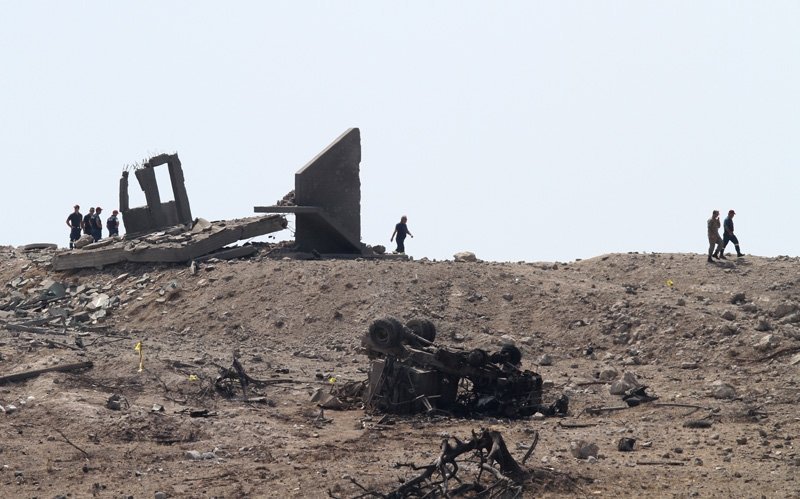Cyprus paid tribute to the 13 soldiers and firefighters who died after badly stored Iranian munitions exploded at the Mari naval base on July 11, 2011, shocking a nation and causing rolling power cuts.
Monday marks 11 years since the tragic event, the island’s biggest peacetime disaster, with the state holding a memorial service at a monument to those who died.
“No one has forgotten the heroism of the 13 people who died in the Mari explosion 11 years ago.
“And no one can ever forget the negligence and responsibility born by the state for the incident,” said President Nicos Anastasiades at the anniversary service.
Anastasiades conveyed the public’s “enormous gratitude” for the self-sacrifice of the men who were declared national heroes two years after the event.
The President said their sacrifice was not in vain.
In the wake of the disaster, “the government had not been idle in redressing the oversights, weaknesses and deficiencies in the system that had led to the tragedy on July 11, 2011”.
“We proceeded with a series of radical changes and upgrades to the operating rules, not only to preserve operational readiness but also to improve conditions for those called upon to defend their country’s integrity and our domestic security.”
Seven sailors and six firemen died in the blast caused by Iranian munitions haphazardly stored at the naval base.
The blast’s shock wave caused significant damage to the island’s biggest power station, located in the area, which impacted the economy.
Sanction busting
The munitions had been seized from the Monchegorsk, a Cyprus-flagged ship en route to Syria from Iran in February 2009.
The munitions were seized in February 2009 from the ship suspected of transporting them from Iran to Palestinians in Gaza through Syria in breach of a United Nations ban on Iranian arms exports.
Based on bilateral agreements, Cyprus authorities acted on information from the USA to intercept the ship and confiscate any weapons.
The containers found on board were stacked in an open space at the Evangelos Florakis base and left exposed to the elements for over two years, despite repeated warnings about the risks.
A public inquiry into the causes of the blast found that the gunpowder had spontaneously combusted after becoming unstable from prolonged exposure to wide temperature swings.
Papacostas
A three-judge panel ruled that then Defence Minister Costas Papacostas, 73, was responsible for safeguarding some 80 gunpowder-filled containers and was aware of the dangers posed by the munitions but failed to take action to prevent the explosion.
He was sentenced in July 2013 to five years in prison for manslaughter and causing death by reckless or dangerous act and behaviour.
Papacostas died while serving time, as appeals made by his family for his release due to his seriously compromised health were rejected.
He died in February 2015 after suffering an acute heart attack.
Another state official serving under then-President Demetris Christofias, former Foreign Minister Markos Kyprianou, was acquitted of all charges.
The court said Kyprianou was neither responsible for what would happen to containers nor their storage conditions, but rather he was following policy forged by Christofias, who was believed to be wary of upsetting either Syria or Iran.
Christofias had told Syrian President Bashar Assad six months after the munitions’ seizure that it would remain on the island until its return to Syria or Iran.
Testifying before the public inquiry, Christofias attributed the remark to “diplomacy.”










